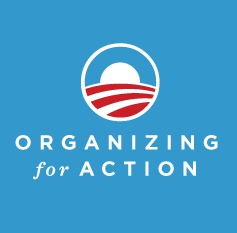
Shrouded in secrecy and spawning more than its share of dystopian conspiracy theories, the Trans-Pacific Partnership (TPP) treaty -- being negotiated by the U.S. and eleven foreign governments (Australia, Brunei, Canada, Chile, Japan, Malaysia, Mexico, New Zealand, Peru, Singapore, and Vietnam) -- is, like many such treaties, intended to reduce barriers to trade between trading partners and increase the free flow of goods between nations.
Although Wikileaks has released putative draft versions of portions of the treaty, it seems most prudent to wait until the treaty has been completed before commenting; after all, there have been twenty rounds of negotiations (most recently in Ottawa, Canada on July 3-13, 2014), and Taiwan and Korea have also indicated an interest in joining the negotiations.
But of course various stakeholders in the different countries negotiating the treaty have their own agendas and many are concerned that the product of this treaty with have unexpected (if not entirely unintended) consequences (see, for example, NAFTA and GATT/TRIPS and the WTO it spawned). President Obama has asked Congress for so-called "fast track" authorization for the treaty, which if granted would short circuit much of the debate that could be expected in this Congress for almost anything this President tries to do.
 In addition, much of the President's natural political base is at best skeptical about these treaties in general and this treaty in particular, a skepticism only enhanced by the secrecy with which it is being negotiated. As an indication of the seriousness with which the Administration takes this treaty, a non-profit group called "Organizing for Action," representing the President, sent the following e-mail to members, supporters and others, in the President's name:
In addition, much of the President's natural political base is at best skeptical about these treaties in general and this treaty in particular, a skepticism only enhanced by the secrecy with which it is being negotiated. As an indication of the seriousness with which the Administration takes this treaty, a non-profit group called "Organizing for Action," representing the President, sent the following e-mail to members, supporters and others, in the President's name:
When I ran for this office, I heard from Americans who felt left behind by trade agreements of the past.
It's those people I'm thinking about as I lay out the framework for a new trade agenda that will be guided by one simple principle: putting American workers first.
I've made it clear that I won't sign any agreement that doesn't live up to that.
The Trans-Pacific Partnership we're working on would be the most progressive trade agreement in American history -- with the strongest labor, environmental, and intellectual property standards yet. It's designed to protect jobs and help grow the economy by focusing on working and middle-class families.
This is a complex issue with a lot at stake for Americans, and I want voices like yours to be part of the conversation. On Monday, David Simas, one of my closest advisors, is getting on the phone with OFA supporters to talk more about what this policy means.
Send OFA questions or concerns you have -- and David will get a chance to address as many as he can on Monday's call.
This is a chance to make sure that the United States -- and not a competitor like China -- gets to write the rules for the world economy in the 21st century.
Here's why that matters:
-- It levels the playing field for American workers. This plan will make it easier to sell goods made in America to some of the most dynamic and fastest-growing markets in the world: 95 percent of the world's consumers live outside the United States.
-- It reflects American values. All countries that sign the Trans-Pacific Partnership must adopt strict labor rules if they want to send their goods to the United States. That means enforceable regulations to ensure acceptable working conditions, such as a minimum wage, maximum hours, and workplace safety. Workers will have the right to form unions and bargain collectively.
-- It's good to the environment. This plan goes well beyond protections from past agreements, and contains enforceable commitments to protect our oceans, forests, and endangered wildlife.
For me, it's important that our trade policy is consistent with my top priority as president: making sure that more hard-working Americans have a chance to get ahead.
Exports of American products supported 11.7 million American jobs in 2014 -- those are good, middle-class jobs that pay up to 18 percent more than other jobs. And of the companies that export goods, 98 percent are small businesses.
There's a lot more to talk about, so I hope you'll join the conversation.
Ask a question, or voice your thoughts -- and OFA will collect them for the call on Monday:
http://my.barackobama.com/Ask-A-Trade-Question
Thank you,
Barack Obama
The President has asked for questions. It seems only fair for interested parties to supply them.